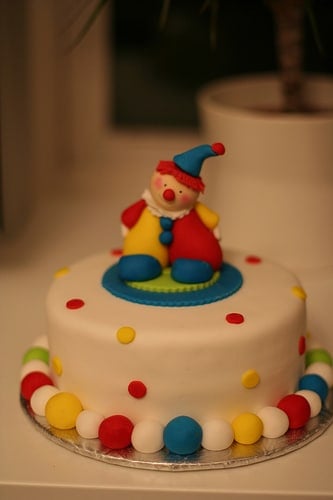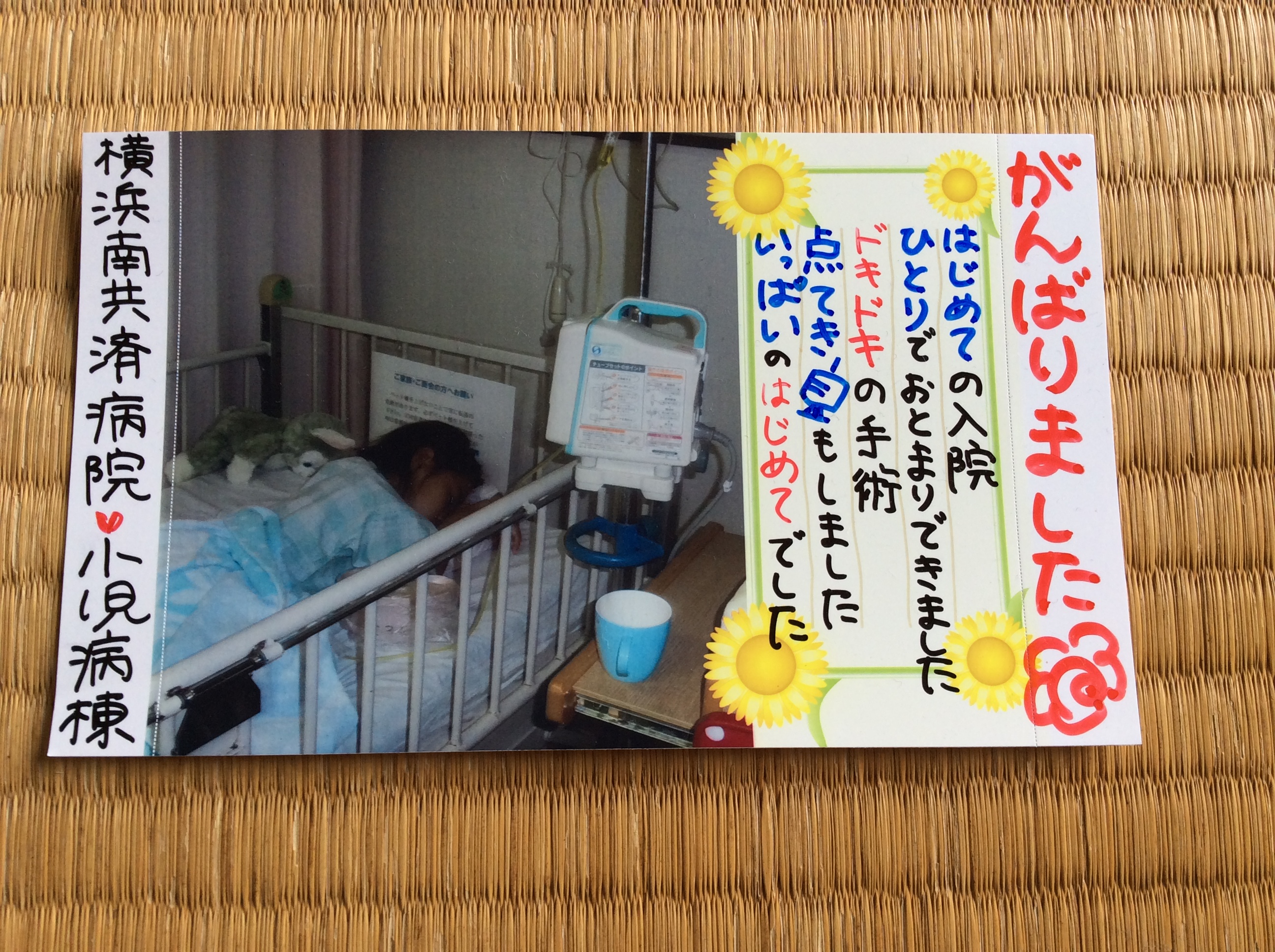by Mama B (Saudi Arabia) | Nov 26, 2014 | Adolescence, Awareness, Boys, Brothers, Culture, Education, Eye on Culture, Family, Gender, Girls, Husband, International, Life Lesson, Motherhood, Older Children, Parenting, Puberty, Relationships, Saudi Arabia, School, Teenagers, Womanhood, World Motherhood
I grew up in a house full of girls with one baby brother, who was so much younger than me that our friends and social lives didn’t overlap.
Now that I am the mother of three boys and one girl, I am learning many things I never knew about boys: they are more straightforward, easier to read, and, honestly, easier to persuade than girls. Boys wrestle–a lot. Even when they haven’t got the hang of walking yet, they wrestle. (I still don’t know why.) Boys are more emotional than I expected, and more sensitive.
I know there’s a lot more to learn about raising boys, and I’m excited to do it–especially because I can call in their father whenever something freaks me out.
Despite my growing expertise in raising boys, something recently caught me off guard. Something obvious in our society, but not so prevalent in my ‘tribe’ (which is what I call my close family–mother, father, aunts, uncles, cousins, etc.).
My eldest turned 11 this year, and is in the phase between boy and teenager. And I find myself surprised to discover that our society’s segregation of men and women is changing my relationship with my own son.
I was totally unprepared for the separation that occurred when he moved from the little school to the big school. I went from being able to walk into his class, to speak to his teacher, and to meet his friends and their moms, to having to drop him off and pick him up outside the school gate (but not right in front of it, where the other boys could see us).
No more going into the school, unless I make an appointment with the headmaster and go to his office to speak with the teachers. (And even that is not permissible in most boys’ schools, the majority of which would not even allow a woman on the premises. The same is true for girls’ schools, which don’t permit men on the premises.)
My son can no longer go into the all-women area of the malls. In a few years, he won’t be allowed in any area of the mall without a ‘family’ for fear he will terrorize the girls. (Ironically, some young teenagers wait outside the malls and approach older women, or women with children, and ask them to pretend they are one family to gain entrance into the mall.)
Soon, my son won’t invite his friends over when his sister is home, although he could still invite cousins and close family friends.
There are so many unwritten rules concerning the separation of girls and boys, and a million variations. For some families, it’s pretty black and white: unless he is your brother or father, or unless she is your sister or mother, you don’t spend time with them. It also depends upon the region. In the eastern or western provinces, strict segregation is not as prevalent as it is here in the central region. In seacoast areas, people have the benefit of interacting with many cultures, and are therefore more forgiving.
I am baffled by how our society has become so segregated. Throughout the early history of Islam, segregation wasn’t practiced. Modesty and chastity, yes. Total segregation, no. I do not even think it was part of our culture as Saudis. At least, not to the extent it is today.
Until recently, Bedouin women were expected to welcome travelers into their tents, and to make them coffee, and even dinner, regardless of whether her husband was there. Yes, most would have had their faces covered (again, a cultural custom, not religious one), but they interacted with men all the time. It’s only in recent years that things have changed. Some put it down to the influences that came into Saudi when it was united. Others say it is a reaction to how fast we were exposed to the outside world, and how quickly we went from tribal life to modern-day life.
Theories aside, I’m facing the reality of being shut out of a part of my son’s life and of him being shut out of mine.
When I explained my concern to one of his teachers (over the phone) he said, “You can’t follow him around all of his life!” As if I were a stalker! Am I being a stalker? Hmmm, I wonder how involved I would be in his day-to-day school life if I were?
My biggest fear is that if he gets caught up in the wrong crowd, segregation makes it easier in certain houses with absent fathers to make mistakes and do stupid stuff. I thank God his father keeps an eye on him, and that he still fills me in about his day and talks to me when he is upset. If we can continue to talk, I think I may be okay.
Perhaps I just don’t like not being in control of the situation, or perhaps it’s that I don’t have the choice.
Would you naturally step back from your son’s day-to-day life when he turns 11 or 12? Would you withdraw from knowing his friends and supervising his outings?
It’s all foreign territory for me now, and I am learning to deal with it as best I can.
This is an original post to World Moms Blog from our contributor in the Kingdom of Saudi Arabia and mother of four, Mama B.
Photo credit: Dr. Coop under Flickr Creative Commons License

Mama B’s a young mother of four beautiful children who leave her speechless in both, good ways and bad. She has been married for 9 years and has lived in London twice in her life. The first time was before marriage (for 4 years) and then again after marriage and kid number 2 (for almost 2 years). She is settled now in Riyadh, Saudi Arabia (or as settled as one can be while renovating a house).
Mama B loves writing and has been doing it since she could pick up a crayon. Then, for reasons beyond her comprehension, she did not study to become a writer, but instead took graphic design courses. Mama B writes about the challenges of raising children in this world, as it is, who are happy, confident, self reliant and productive without driving them (or herself) insane in the process.
Mama B also sheds some light on the life of Saudi, Muslim children but does not claim to be the voice of all mothers or children in Saudi. Just her little "tribe." She has a huge, beautiful, loving family of brothers and sisters that make her feel like she wants to give her kids a huge, loving family of brothers and sisters, but then is snapped out of it by one of her three monkeys screaming “Ya Maamaa” (Ya being the arabic word for ‘hey’). You can find Mama B writing at her blog, Ya Maamaa . She's also on Twitter @YaMaamaa.
More Posts

by Kyla P'an (Portugal) | Nov 21, 2014 | 2014, Adolescence, Awareness, Childhood, Girl Child, Girls, Kids, Life, Life Lesson, Media, Milestones, Motherhood, Older Children, Parenting, Puberty, Teenagers, World Motherhood, Youth

The Wicked Witch of the West
Eight years ago I had my first child, a daughter. Like most new parents, I got all sorts of advice and did a great deal of information gathering; particularly on those uncharted, early stages of infancy and babyhood.
I knew it was possible my child would have colic, GERD, and rashes. I had heard about the “terrible twos” and the “trying threes.” I was fortified for long days and short nights, especially during the early years. And I knew having a child home to entertain and educate for five years would be a whole different challenge from my professional life.
But, I thought I was ready because I knew—at the end of a long, sometimes dark, tunnel—there would be kindergarten, followed by the blissful and innocent days of elementary school to put me back on track. I anticipated that from age 5-11, life would be pretty seamless. Five years of struggle followed by at least six of predictability before the challenges of the teenage years moved in.
So when our daughter entered kindergarten three years ago, my husband and I settled in for the “predictable” parenting years we were expecting.
Sadly—and far too soon—those years are coming to a close…
This past summer, we got glimpses of something we had heard about but weren’t prepared for just yet: moodiness, sassy attitude, changes in speaking style, exploration of identity, greater awareness of appearance and increased self-consciousness.
Now that 3rd-grade is in full-swing, those glimpses are becoming the norm. It’s fairly clear that we are entering a new stage of parenting: we’re entering the TWEENS.
“Tween” is a term we use here in the US to describe the pre-teen stage of life. It’s in-between being a sweet, young kid, who’s dependent on parents and family for every aspect of life, and puberty, when a child morphs into a sassy, experimenting, independent teenager, stomping off toward adulthood.
The Tweens is a stage of life—I think populated almost exclusively by girls—when kids try to propel themselves prematurely into their next growth phase. They test out language they pick up from older kids, through pop-music and from movies and television. They mimic styles they see in the media. They use vernacular such as “like” and “whatever” and “no way!” They gravitate almost exclusively to their own gender groups.
And despite even the best attempts to shield children from pop culture and the negative influences present on TV, they still somehow find their fix at school.
The tweens are a funny, little limbo-land.
Take our daughter for example: She’s still afraid of the dark (in fact, she’s fairly convinced the Wicked Witch from the Wizard of Oz is living in her closet); her favorite Disney character is Sofia the First; she loves kittens and rainbows, unicorns and stuffed animals. But recently, she also has discovered Disney’s High School Musical, and when we go to our pediatrician’s office, she pours over the book, It’s Perfectly Normal, (she has a lot of questions about both).
These days, she prone to emotional outbursts, demanding “alone” time and spontaneous moments of being shy. Aren’t these teenager behaviors?
Tonight, while my five-year-old was in a martial arts class, my daughter and I sat in the car having a chat. She said she was sad because she felt frustrated and sort of out of control. I found myself explaining puberty to her and talking about hormones and endorphins and lots of other changes in our bodies that made us feel confused and out of sorts…Uh, did I mention she’s only 8?
According to the American Academy of Pediatrics, the onset of puberty in girls now happens as young as 7! OK, so none of my early parenthood prep or information gathering or family planning ever involved needing to have these conversations so soon. Afterall, my youngest just started kindergarten. By my accounts, I had just come out of the trenches. I’m not battle ready. I don’t have my armor on. This is going to be a massacre!
But this is where we are these days…the in-beTWEENS. Wish us luck.
Have you experienced these sorts of changes in your own child(ren)? If so, at what age? Any advice for getting through to the other side?
This is an original post to World Moms Blog from our managing editor and mother of two (one of whom is entering her tweens), Kyla P’an.
The image used in this post is credited to Karen. It holds a Flickr Creative Commons attribution license.
Kyla was born in suburban Philadelphia but spent most of her time growing up in New England. She took her first big, solo-trip at age 14, when she traveled to visit a friend on a small Greek island. Since then, travels have included: three months on the European rails, three years studying and working in Japan, and nine months taking the slow route back from Japan to the US when she was done. In addition to her work as Managing Editor of World Moms Network, Kyla is a freelance writer, copy editor, recovering triathlete and occasional blogger. Until recently, she and her husband resided outside of Boston, Massachusetts, where they were raising two spunky kids, two frisky cats, a snail, a fish and a snake. They now live outside of Lisbon, Portugal with two spunky teens and three frisky cats. You can read more about Kyla’s outlook on the world and parenting on her personal blogs, Growing Muses And Muses Where We Go
More Posts - Website
Follow Me:

by Aisha Yesufu | Nov 19, 2014 | 2014, Africa, Awareness, Being Thankful, Education, Family, Life Lesson, Motherhood, Nigeria, Parenting, Priorities, Responsibility, World Motherhood
 Taking responsibility for our actions is not always easy to do. It is funny how you see someone go on about the enemies in her life, who have denied her the success she so deserves.
Taking responsibility for our actions is not always easy to do. It is funny how you see someone go on about the enemies in her life, who have denied her the success she so deserves.
People spend more of their time and prayers focused on their enemies than on themselves. They cast and bind those enemies. They go to all lengths to unravel their enemies when all they need do is stand in front of the mirror and recognize the enemy before them. When we blame others, we become our own enemies.
We should learn always to take responsibility for our actions. When we take responsibility for our actions, it means the solution lies within us, but when we blame somebody else, it means that only the other person can find a solution to the issues.
If you fail at anything, accept it; learn from it. If you do not get a promotion, or even lose a job, find out what you did wrong. Learn from it to help you get the next promotion or to keep the next job. Do not blame your boss, your stepmother, half-brother or sister, the old woman in your village, your neighbor, your in-laws or the most-blamed devil. Just accept responsibility.
If we are not taught to take responsibility as children, we grow into adults who won’t take responsibility. Most of us struggled to get where we are today, and we want to protect our kids from the struggles of life–forgetting it was those struggles that helped make us who we are.
As parents, we have to allow our kids to be responsible for their actions. We have to allow them learn from their mistakes. There is no ideal world. They have to learn from the UNIVERSITY OF HARD KNOCKS i.e., LIFE. We cannot protect them from life; we have to allow them to live life.
A friend, whose 2-year-old son had broken his favourite cup, went to great lengths to find him a replacement, even to the extent of meeting the person who had given him the cup as a party favour.
I pointed out to her the need for allowing her child to be responsible for his actions. He breaks his cup, he loses it, and he learns that to keep a cup, he has to be careful with it.
I pointed out that unless there is a place where one can total one’s car and walk in and get a replacement free of charge, then she should let him learn by not providing a replacement.
Failure, they say, is not falling down. It is staying down.
People who take responsibility for their actions learn from their failures, and you rarely see them complaining. They are the ones who look as if everything goes smoothly for them. They never seem to have any problems.
So, the next time you feel the urge of blaming anyone else or making excuses why something is not going the way you want, just remember when you blame another you take away the power of solution from your hands.
This is an original post to World Moms Blog from our new writer in Nigeria, Aisha Yesufu.

by Martine de Luna (Philippines) | Nov 13, 2014 | 2014, Life Lesson, Motherhood, Parenting, Philippines, World Moms Blog, World Motherhood
Here in Manila, the Philippines, Christmas season is in full swing. Everywhere you go, there are signs of it: carols playing in the shopping centers; buildings decked out in holiday decorations; malls holding 3-day pre-Christmas sales; churches displaying the Christmas belen (Nativity) scene; people holding pre-Christmas parties and charity drives. Christmas here is a season of looking ahead to better days, and yes, also to December the 25th!
Speaking of carols, the line, “a thrill of hope” has been on my mind lately. I’ve not gotten around to bring out Christmas decorations (I’m one of those who waits til the end of November), but I have gotten around to thinking about that word “hope.” The line, of course, is from on of my favorite Christmas carols, O, Holy Night. As Christian, it means for me that I await Jesus Christ’s birth, because it holds for me “hope”, hope that He came to save the world in His coming.
Beside the belief that surrounds my religion’s commemoration of Christmas, I find the hope is something we all crave today in the world, isn’t it? With all the tragedy around us, the terror, the fear of disease… hope can often seem far away from our present reality.
And yet, it is always there. Thanks to efforts from the global community of “hope bearers” (like those mentioned this post on #BringBackOurGirls, or this post on the #AYA Summit), there is dialog going on; there is ACTION being taken. And by who? Well, at least for those in our community of global moms, women, mothers. As natural givers of life, I believe we as women are truly blessed with the capacity to HOPE. We know it all too well, during those nine or so months, for instance, when we bear that precious cargo in us!
I know it all too well, right now, in fact. As a second-time mother this coming 2015, I wait in hope for my baby daughter to arrive. I know I have hopes for her, too. For myself, I hope that I will be a good mother to two kids! (Help!) In fact, as I write this, she is kicking me vigorously and giving me quite a tiring episode, haha! I’m both tired and delighted to feel her kicks. Each one is a reassurance that all is well, and that I will see her really soon.
These “thrills of hope” — these summits we attend, the causes we support, the people we advocate through compassion and efforts to give — these all enthral us to ACT on hope. It amazes me that we have the energy to live outside of ourselves, of our own families, our children. And yet, it is right that we do, isn’t it? Because if there is anyone who can better relate to “thrills of hope” — and give fire to that hope — then it is us, world moms, from wherever we are around the globe.
What are your current hopes — for family, for yourself, or for the world around you? They can be big or small, or whatever. What’s important is to never lose faith in what’s possible!
This is an original post by Martine de Luna for the World Moms Blog.
Martine is a work-at-home Mom and passionate blogger. A former expat kid, she has a soft spot for international efforts, like WMB. While she's not blogging, she's busy making words awesome for her clients, who avail of her marketing writing, website writing, and blog consulting services. Martine now resides in busy, sunny Manila, the Philippines, with her husband, Ton, and toddler son, Vito Sebastian. You can find her blogging at DaintyMom.com.
More Posts

by Ecoziva (Brazil) | Nov 12, 2014 | 2014, Awareness, Brazil, Childhood, Cultural Differences, Entertainment, Family, International, Kids, Life Lesson, Milestones, Moving, Nutrition, Relationships, Stress, Tragedy, World Motherhood
This is the second post of a two-part series. To read part I of this post, please click here
 It was my fourth birthday party. Since we were moving to Brazil soon, it was also a farewell party, and a big one. It was the only big birthday party I have had in my entire life. I remember it was held at some sort of club, there were a lot of people and a hired caterer (something almost unthinkable for my mother!) And then there was the clown. And he wanted to paint my face.
It was my fourth birthday party. Since we were moving to Brazil soon, it was also a farewell party, and a big one. It was the only big birthday party I have had in my entire life. I remember it was held at some sort of club, there were a lot of people and a hired caterer (something almost unthinkable for my mother!) And then there was the clown. And he wanted to paint my face.
I was completely and irrationally terrified as only a four-year-old can be. While most of the other children were loving it all, I wanted nothing to do with the clown and his face paint (and certainly not on my face!). My party was ruined. In fact, I hid in the kitchen the entire time.
I don’t know exactly who stayed with me in the kitchen, but I don’t think it was either of my parents – at least not all of the time. Of course they were probably running around organizing things and tending to the guests. What really comforted me at that moment was the food, more specifically the dozens of intricately decorated mini-ice cream cakes. I recall later telling someone that the good side of the party was that I had stayed close to the food the entire time.
Although I hadn’t thought of it in a while, this story is not something that had been forgotten or hidden in my mind, as it has been told and retold over the years by my mother. The interesting detail that came up now was that of the ice cream cakes. When I remembered the ice cream cakes I felt like I could eat a ceiling-high pile. I felt like I had been looking for them my entire life. It was such a visceral craving it felt like nothing else could fill up my void except for those ice cream cakes. Right now writing this I want those ice cream cakes so badly it almost hurts.
It is interesting because here in Brazil ice cream cakes are rare – I believe I have only seen them for sale once in the more than 30 years I have lived here. I don’t know why this particular detail only came up so strongly now, nor what has been triggering this strong need for comfort and protection, which originally was a need to be shielded from someone scary (the clown) who wanted to do something I did not want to do (paint my face).
I don’t know if this is related, but it is also funny because I was never a big fan of makeup. Also, once when I was six and went through a brief period of interest for makeup, I got a kit of child makeup and ate several of the flavored lipsticks that came with it!
Perhaps this story will bring about significant change in my relationship with food, perhaps not, but it does bring up several issues related to my relationship with my own children.
For instance, it has reminded me that no matter how I try, it is impossible to protect them from every traumatic incident or foresee the lasting effect of seemingly small events on their lives. On the other hand, it is also a strong reminder not to belittle the things that upset them – what might seem insignificant or minor to me may be a huge deal to them and I must give them the best emotional support we can at all times.
Please share your stories about your relationship with food. Do you interfere in your children’s relationship with food? Do you actively foster a healthy relationship with food in your home?
This is the continuation of an original post to World Moms Blog published by our writer in Brazil and mother of three, EcoZiva. You can read Part I here.
The image in this post is credited to Chris Martin. It holds a Flickr Creative Commons attribution license.
Eco, from the greek oikos means home; Ziva has many meanings and roots, including Hebrew (brilliance, light), Slovenian (goddess of life) and Sanskrit (blessing). In Brazil, where EcoZiva has lived for most of her life, giving birth is often termed “giving the light”; thus, she thought, a mother is “home to light” during the nine months of pregnancy, and so the penname EcoZiva came to be for World Moms Blog.
Born in the USA in a multi-ethnic extended family, EcoZiva is married and the mother of two boys (aged 12 and three) and a five-year-old girl and a three yearboy. She is trained as a biologist and presently an university researcher/professor, but also a volunteer at the local environmental movement.
More Posts

by Melanie Oda (Japan) | Oct 16, 2014 | 2014, Awareness, Being Thankful, Child Care, Childhood, Cultural Differences, Culture, Expat Life, Eye on Culture, Family, Health, Hospital, International, Japan, Kids, Life Balance, Life Lesson, Living Abroad, Milestones, Motherhood, Parenting, World Motherhood, Younger Children
 My 6 year-old daughter had her tonsils and adenoids out over summer vacation. She had been diagnosed with sleep apnea several months earlier and since nothing else was helping, finally I reluctantly agreed to the surgery.
My 6 year-old daughter had her tonsils and adenoids out over summer vacation. She had been diagnosed with sleep apnea several months earlier and since nothing else was helping, finally I reluctantly agreed to the surgery.
I was reluctant because hospital “culture” in Japan is very different from the US, where I am from, and because I knew I would be up against another cultural wall in regards to care for my older child.
This surgery, that requires a one-night stay in the hospital in either the US or UK (according to some quick research on my part,) here in Japan means seven nights in the hospital.
Since hospital rooms are shared, parents are not allowed to stay over night for any except the youngest of patients. Parents are expected to provide clean laundry and cutlery for the patient every day.
The children’s ward had a strict daily schedule, with times when they we’re confined to their beds (which literally had bars like a prison cell,) and times when, if they were well enough, they were allowed to use the playroom.
But absolutely under no circumstances whatever could they leave the children’s ward. And visitors under the age of 15 were not allowed in the ward.
This was a conundrum for me. I have a 9 year old son, who was on summer vacation at the time, and a husband who works 12 hour days, on a good day.
Hospital culture in Japan is strangely at odds with the wider culture in general. A high percentage of children co-sleep with their parents well into their elementary years. That is the cultural norm.
However, the hospital where my daughter had surgery, would not allow parents to spend the night with children over 2 years old.
This particular hospital allows parents of small children to stay until they fall asleep, but for my daughter, that may actually have been worse. Come lights out at 8pm, there was more crying in the children’s ward than from the nursery down the hall.
I had another child waiting at his friend’s house or at Baba’s (grandmother’s) house for me to come home, after all. My husband tried to get home from work at a decent hour, but I think he made it by 7pm once.
The day after the surgery, when my daughter was still feeling ill from the effects of the anesthesia and started bleeding from her nose, I was very grateful that she was in the hospital where I could have a professional attend to any concerns with the push of a nurse-call button.
Around Day 3, though, I could feel myself beginning to fall apart, fiber by fiber. The stress and plain old-fashioned exhaustion were starting to get to me.
My son at home was starting to feel the effects of being shuffled from place to place numerous times a day. My daughter wasn’t sleeping well and wanted to come home. I begged the doctor to discharge her a bit early, even a few hours would be great. His response was that the other child in the same room who’d had the same surgery on the same day was not recovering as well, and it would be upsetting for her if mine left earlier.
Excuse me, what? I thought, blinking several times, sure I had misheard. But I hadn’t.
On the day she was finally discharged, the nurses and staff presented her with a postcard, complete with a photo of her post-op, “to remember them by.” My first instinct was to burn it. Who would want to remember this? But I kept it, an ironic little reminder of the Japanese tendency to have “entrance” and “exit” ceremonies for everything.
I was reminded of a speech the principal of a junior high gave to the student body to announce that I was leaving: “People enter our lives, and at some point we must be parted. We should cherish each of these events.” Perhaps one day my daughter will value the card.
For now, she gets angry every time she sees it. The poor little girl has been waking up at night just “making sure I’m at home” for the past several weeks.
But now I look at the card and I feel profoundly thankful that my kids are, for the most part, healthy and happy. I don’t know how parents, who have to juggle (and it is a juggling with knives-type event, not harmless bean bags) a child’s hospitalization—along with the mundane tasks of everyday life that just keep coming, even when we are least able to deal with them—do it.
I say a little prayer for you every night, moms I do not know, and wish you strength and patience and space to breathe.
Has your child ever been hospitalized? What was it like for you, as a parent?
This is an original post to World Moms Blog from our mother of two in Japan, Melanie Oda.
The image used in this post is credited to the author.
If you ask Melanie Oda where she is from, she will answer "Georgia." (Unless you ask her in Japanese. Then she will say "America.") It sounds nice, and it's a one-word answer, which is what most people expect. The truth is more complex. She moved around several small towns in the south growing up. Such is life when your father is a Southern Baptist preacher of the hellfire and brimstone variety.
She came to Japan in 2000 as an assistant language teacher, and has never managed to leave. She currently resides in Yokohama, on the outskirts of Tokyo (but please don't tell anyone she described it that way! Citizens of Yokohama have a lot of pride). No one is more surprised to find her here, married to a Japanese man and with two bilingual children (aged four and seven), than herself. And possibly her mother.
You can read more about her misadventures in Asia on her blog, HamakkoMommy.
More Posts














